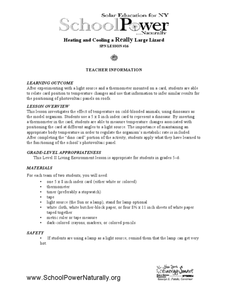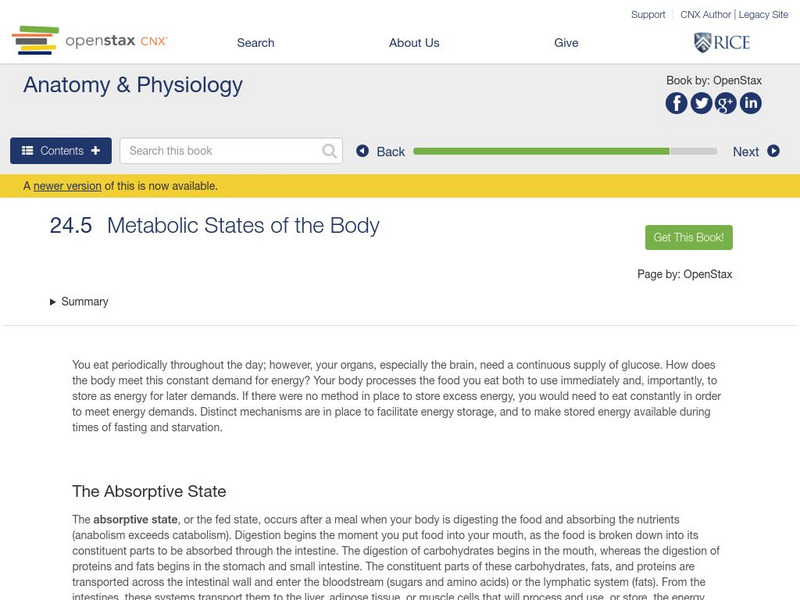Curated OER
Heating and Cooling a Really Large Lizard
Remind your middle school scientists how fox ear size varies depending on the climate they live in; large ears allow heat loss while small ears keep heat in. Discuss how a cold-blooded animal might try to regulate body temperature. Then...
Curated OER
What is BAC?-Blood Alcohol Concentration
In this blood alcohol instructional activity, students read about the factors that affect a person's blood alcohol concentration. Students use a given formula to calculate the amount of alcohol in a list of four different drinks and...
Curated OER
Heating and Cooling a Really Large Lizard
Students investigate the effect of temperature on cold-blooded animals, using a 5 x 8 inch index card to represent a dinosaur as their model organism. Students measure temperature changes that occurs at different angles to a light...
Curated OER
Nutrition
In this nutrition worksheet, students describe what nutrient is and how the energy it has is measured. Then they explain what is meant by interconversion of molecules. Students also list the common vitamins and mineral required by the...
Curated OER
Water Quality and Temperature
Students evaluate the effects of temperature changes on the metabolic rate of a clam. Conclusion questions are addressed which help students to process and articulate their experiences.
OpenStax
Open Stax: Anatomy & Physiology: Energy and Heat Balance
Learn how the human body regulates temperature and explain the significance of the metabolic rate.
OpenStax
Open Stax: Anatomy & Physiology: Metabolic States of the Body
Students describe what defines each of the three metabolic states of the human body: the absorptive state, the postabsorptive state, and starvation.
TED Talks
Ted: Ted Ed: What Is a Calorie?
Emma Bryce explains how a few different factors should go into determining the recommended amount of calories for each person. [4:12]
National Health Museum
Access Excellence: The Mysteries of Aging: Is Diet a Contributing Factor?
An interesting article that discusses effects of diet on senescence (the deteriorative aspect of aging). Dietary restriction is found to slow senescence in lab rats.
Other
Fitness Partner: Activity Calorie Calculator
Let this exercise calculator figure the number of calories you burn while doing over 222 different physical activities.
Texas Education Agency
Texas Gateway: Work, Energy, and Power in Humans
By the end of this section, you will be able to explain the human body's consumption of energy when at rest versus when engaged in activities that do useful work and to calculate the conversion of chemical energy in food into useful work.
Khan Academy
Khan Academy: Regulating Electron Carrier Molecules
Practice questions over regulating electron carrier molecules.












